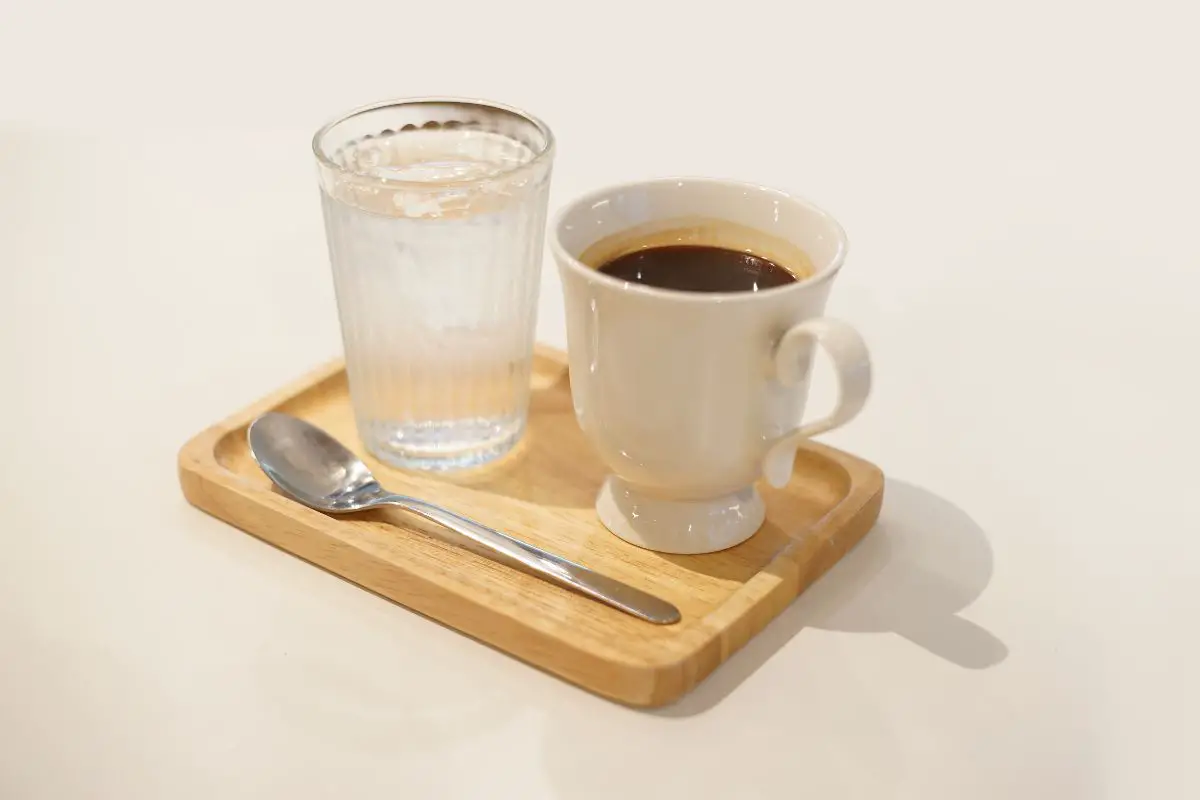Traditionally, it is believed that a healthy person should drink approximately 8 cups of water daily. However, most people find it challenging to drink that much water daily. Sometimes, it may be too cold to drink much water. Other times, you may have drunk a lot of other fluids such as tea, milk, coffee, and soda among others, leaving you with no space for more water.
Among the daily fluid consumption, coffee ranks among the most consumed drinks. Since coffee is a liquid comprising water and ground coffee, does it count toward the recommended daily water intake? Eric Rimm, a professor of nutritional epidemiology based at Harvard University expounds on whether coffee contributes to the daily water intake under the topic “Coffee Talk How It Stacks Up Against Water”. He also gives reasons why coffee should be considered a great choice for hydration.

Drinking 8 Cups of Water a Day- Truth or Myth?
According to Professor Rimm, the traditional rule of drinking eight cups of water daily should be taken as a myth. There is no official amount of water that a person must drink each day. He supports his views based on the fact that food contains water.
Also, the body requires varying hydration levels depending on the temperature, an individual’s body mass, and the extent to which a person sweats. For instance, your body will demand more hydration during hotter days and require less hydration during colder days. Also, people with larger body mass require more water than those with smaller body mass. Additionally, people who sweat more require more water intake.
Prof. Rimm goes further to say that water is not always better than other drinks. He only views water as better than beverages with high added sugars such as sports drinks. He says that it is healthier to drink coffee than soda for numerous health reasons. Recent studies show that coffee enhances memory for about 24 hours after consumption.
According to Prof. Rimm, coffee is a better alternative to water if it is unsweetened. Unsweetened coffee does not contain any significant calories. Thus, if you are drinking plain, black coffee, you are consuming mostly water.
Coffee and Water Retention
Coffee is said to lower the water level in the body. However, a study done in England showed no difference in water retention among 50 participants who drank coffee moderately when compared to 50 others who did not drink coffee. The research concludes that coffee does not elicit diuretic effects when consumed moderately.
Coffee contains caffeine as one of its main active ingredients. Caffeine works like an adenosine receptor blocker. It reduces the reabsorption of sodium in the distal nephron and proximal tubule. Consequently, drinking caffeine in large doses of at least 500 mg per day (more than 4 cups) results in a diuretic effect.
The diuretic effect of caffeine has been studied for many years. The earliest research findings indicate that caffeine consumption results in acute diuresis. They also found that consuming caffeine regularly may lead to developing some level of tolerance against its diuretic effects. Other studies suggest that caffeine withdrawal also leads to a loss of its tolerance within a few days.
These research findings are based on observations made from different doses and forms of caffeine. Some of the studies involved participants who consume coffee habitually, those who have abstained from caffeine, and those who drink coffee regularly.
While the data is varied, collective analysis of the research findings indicates that consuming higher doses of caffeine among individuals who do not drink coffee regularly results in more urine volume. However, moderate consumption of caffeine does not have a diuretic effect. Thus, Prof. Rimm concludes that moderate coffee consumption does not increase water loss from the body. Thus, plain coffee can hydrate you as good as water.
Extra Benefits of Coffee
Besides being hydrating, a cup of java offers more benefits than water. For instance, coffee is rich in natural polyphenols. Polyphenols are micronutrients that prevent degenerative diseases such as high blood pressure, cardiovascular disease, and cancer.
Some research findings show that drinking 2 to 3 cups of coffee daily reduces the risk of diabetes more than among individuals who do not drink coffee. Also, decaffeinated coffee shows similar effects, meaning there are other beneficial compounds in coffee apart from caffeine.
Drinking Coffee Alone
According to Prof. Rimm, someone who drinks coffee alone may not develop any health issues as long as they are including healthy fats, fruits, and vegetables in their diet. Also, such a person should not drink more than 4 cups of coffee daily. He advises people who are sensitive to caffeine to switch to decaf coffee.
He goes further to say that iced coffee offers a little more water content than an equal serving of hot coffee. As the ice melts, it dilutes the coffee and increases its water content.
Water Content in Other Beverages
A research study done in the 1980s involved 6 students who drank 6 pints of beer each over 3 years. Their hydration levels were tested as they nursed hangovers. The results showed that their hydration levels were normal.
Although it is not a bad idea to drink beer, Prof. Rimm advises that beer is not a good beverage to rely on for hydration. However, drinking it does not affect your water intake. Also, he is against hydrating with high-alcohol, low-water beer like tequila.
Summary
Sustaining good health and human life requires maintaining fluid balance in the body. Hydration through water intake balances the fluids lost to keep bodily tissues well hydrated. But does coffee help in hydration or is it a diuretic? In this coffee talk how it stacks up against water, it is clear there is no clear consensus on the amount of water that a person should drink daily. It is also evident that plain black coffee helps the body hydrate as good as water, but only when consumed moderately.